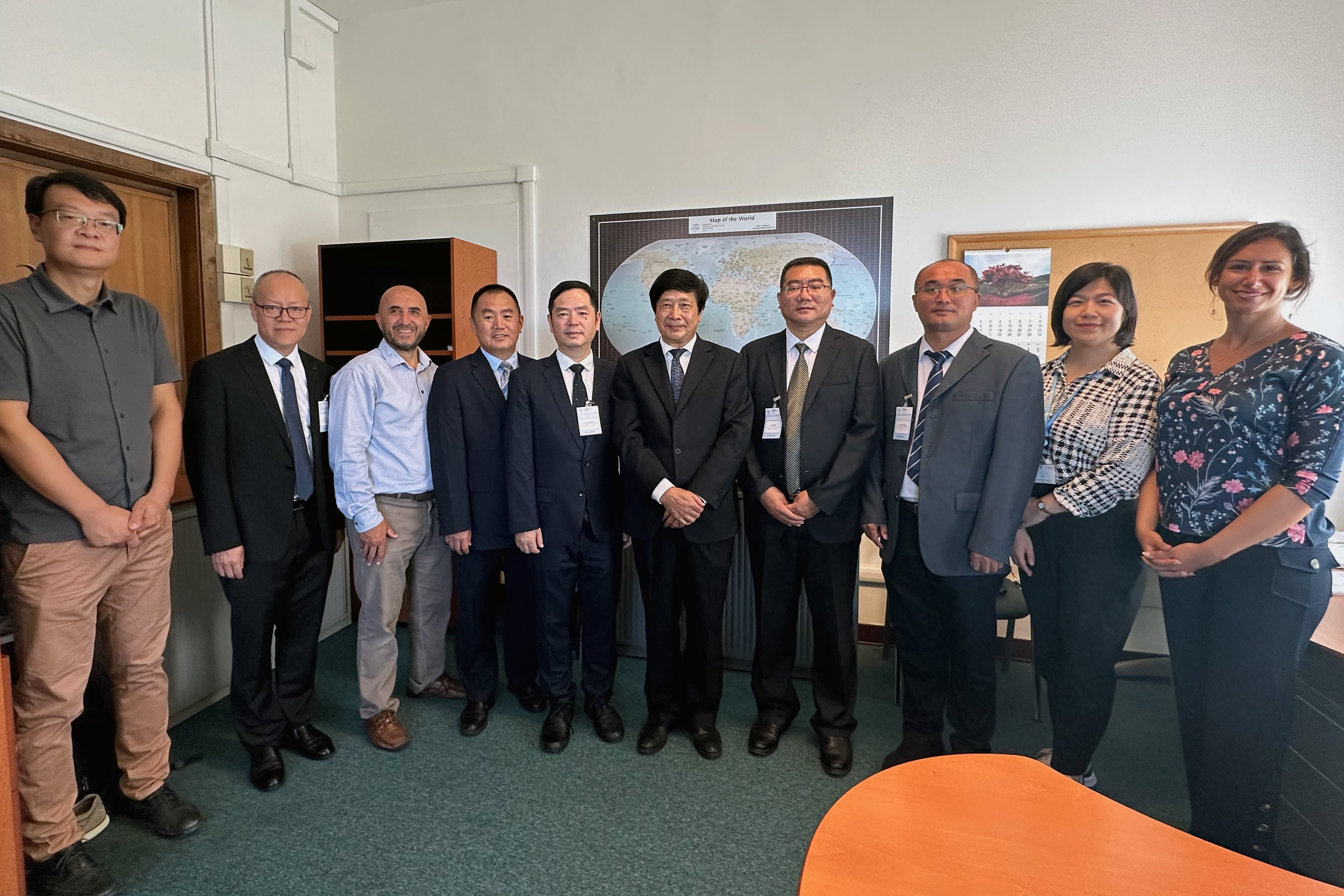News
A delegation from the Chinese Academy of Tropical Agricultural Sciences visited FAO headquarters to discuss further collaboration

CATAS delegation considering collaboration with the OCOP during a meeting in the NSP Director’s Office.
©FAO
10 July 2023, Rome – A delegation of institutional leaders from the Chinese Academy of Tropical Agricultural Sciences (CATAS) visited the Plant Production and Protection Division (NSP) of the Food and Agriculture Organization of the United Nations (FAO) at its headquarters. The CATAS delegation included Huang Sanwen, CATAS President; Liu Kui, Director of the International Cooperation Division; Wang Jiabao, Director of the Tropical Crops Genetic Resources Institute; Du Liqing, Director of the South Subtropical Crops Research Institute; and Wang Shuchang, Director of the Environment and Plant Protection Research Institute.
Jingyuan Xia, NSP Director, warmly welcomed the delegation to the Division and expressed his gratitude to the CATAS for their strong technical support to the development and implementation of the FAO’s One Country One Priority Product Initiative (OCOP). He also briefed the delegation about the progress and impact of the OCOP and expressed interest in more support from CATAS because over 60 percent of the OCOP countries are located in the tropics and their selected Special Agricultural Products (SAPs) are tropical.
Sanwen Huang, the President of CATAS, expressed his appreciation to NSP for inviting experts based at CATAS who are engaged in both the development and implementation of the OCOP. He further introduced the comparative advantages of the support their institution could provide for OCOP in the tropics, including technical expertise, knowledge platforms, products, innovation and technologies. He also expressed their strong interest in expanding cooperation in the areas of sustainable management of banana Panama disease caused by the Tropical Race 4 strain of Fusarium wilt, red palm weevil, and fall armyworm.
Through constructive discussions during the visit, three outputs were achieved: i) deepened understanding of the OCOP from a global perspective; ii) identified the demand for technical support in tropical OCOP project countries and advantageous technical support on offer from CATAS; and iii) determined priority areas of the bilateral collaborations in promoting the implementation of the OCOP country projects in tropical regions.
 CATAS delegation with members of the OCOP Secretariat.
CATAS delegation with members of the OCOP Secretariat.
Background and context to the partnership between CATAS and NSP to implement the OCOP
Currently, the OCOP is being implemented across all five FAO regions with a predominance of country projects in the tropics. Over 60 percent of the 83 countries that have applied to sustainably develop the value chains of 53 SAPs are in tropical areas. Given the opportunity provided by the OCOP for widespread optimization of these value chains, the strengthening collaboration with CATAS provides ample opportunity for expert technical support that adds value to FAO Members involved in the initiative. Indeed, CATAS has been supporting the technical consultations and capacity development activities of the OCOP since 2021.
When the delegation from NSP visited Hainan, China, in April 2023, discussions with CATAS and tours of their facilities highlighted the complete tropical crop technology system they have established, including world-leading technologies for breeding superior varieties of tropical crops and for processing tropical agricultural products. This preceding visit led to the encouraging conclusion that CATAS has the expertise and capacity to provide technical support and services to a wide range of OCOP potential project countries.
